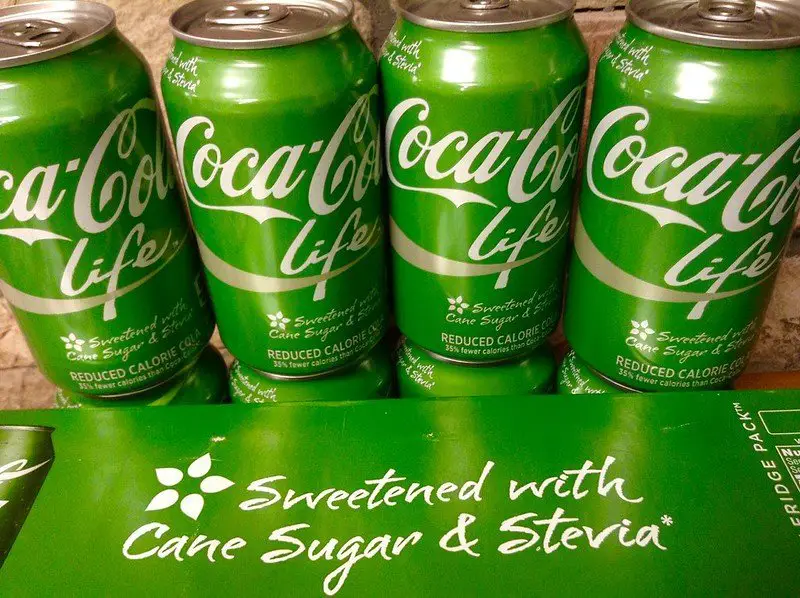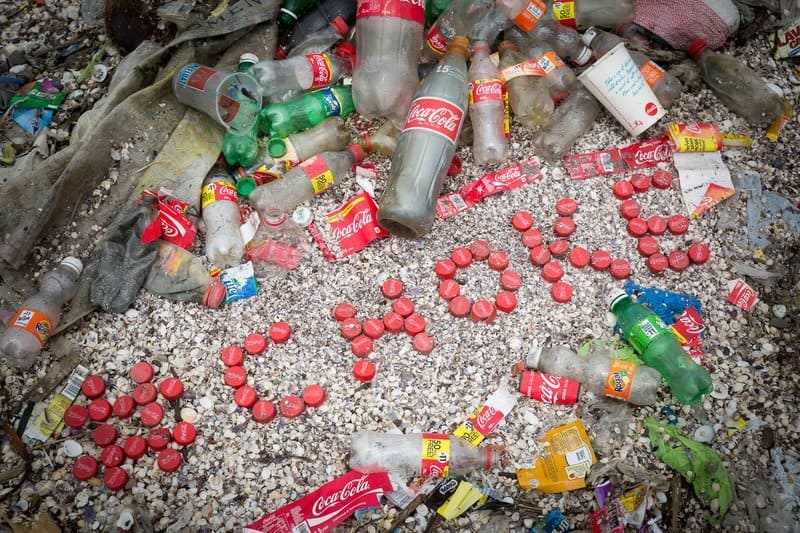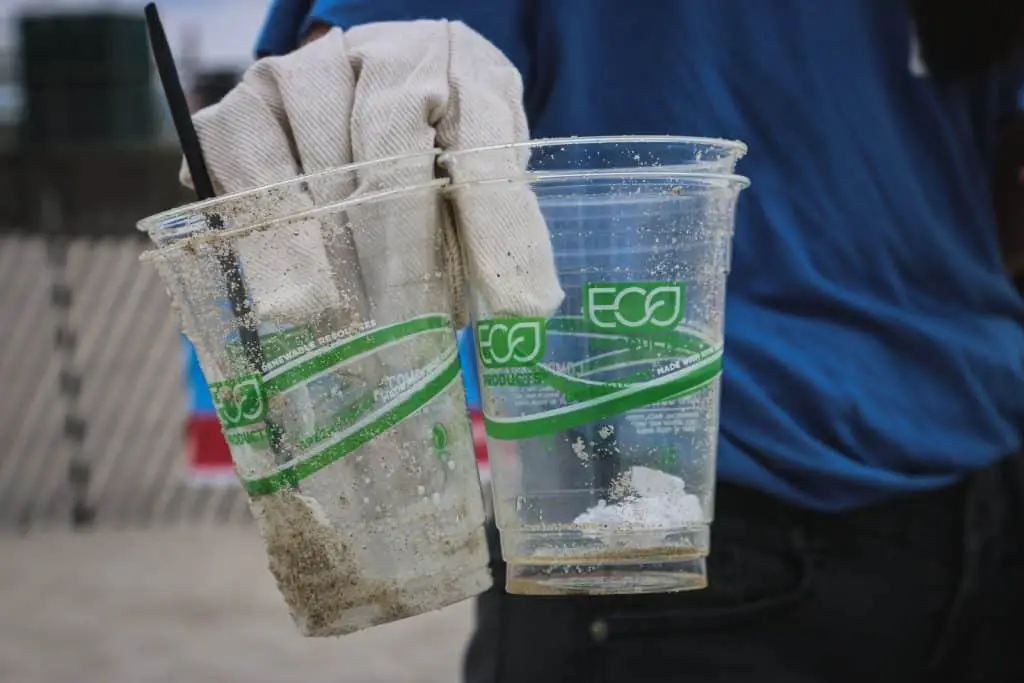What does greenwashing mean?
Greenwashing is conveying a false impression that a company or its products are more environmentally sound than they really are. [1]
As you may have noticed, companies have been pushing products that claim to be biodegradable in recent years. Labeled with green leaves and images that make you think you are doing the environment a favor when purchasing it. But often, this isn’t the case.
Examples like Coca Cola, who has been accused of greenwashing. Using a green new design to attract more health-conscious consumers.

It pushed stevia, and other sugars claiming to be 35% less sweet. It still rots your guts.
Another example is Fiji Water; using advertising campaigns to make the company look more eco friendly than they really are.
Did you know that it takes three liters of water to create one plastic bottle?
According to the WHO, 47% of Fijians don’t have access to clean drinking water. Yet the company ships and flies it’s ‘green’ water worldwide, with the headquarters sitting in Los Angeles, California.
Why is greenwashing bad?
Often people like you and I want to put their money into companies and products that are good for us and the planet but we are being misled.

But you know small changes can make a significant impact, that’s why you are here, isn’t it? However, It can be very disheartening to discover that the products you have been using are not as ‘green’ as they claim to be.
Take the challenge 31 Days To Zero Waste
Which companies are greenwashing?
We found a list on the website truthinadvertising of 13 very famous companies accused of greenwashing. To name just a few, Tide, Windex, Nestle, and Volkswagen are part if this list.
We didn’t feel like listing them all here is of any benefit to you as there are countless other articles already filling this gap.
How can we identify if a company is greenwashing?
1: If a company is using terms like :
- Natural
- Biodegradable
- Plant Based
These are not government-approved terms, they can be used in any marketing campaign without any certification or prove.
2: Check for the Ingredients:

For groceries: There are applications that we can use, like EWG healthy living that identify the products and chemicals.
Ratings for more than 120,000 food and personal care products, now at your fingertips.

For clothing: The goodonyou app or website is a great way to filter out fast fashion and to support companies that are doing their best by being very see-through across the whole production line.
For the ladies and some gents (beauty): The app Think Dirty

In 2007 Futera made a resource called the Sins of Greenwashing. You can read up on this here and learn more about it.

And often, it is common sense. If a company like coca-cola is (# 1 polluter in the world) saying that consumers want plastic bottles. While at the same time Greenpeace has found them to be the number one polluter in the world. Or if the fossil fuel giant BP changes their name to Beyond Petroleum and installs solar panels on their gas stations in an attempt to win more customers over. 😠
If a company contributes to non-profits to fight against plastic pollution but then sells products encased in plastic.
Encouraging recycling but creating products that aren’t recyclable.
Putting inaccurate environmental claims on your products (like biodegradable doggy poop bags). These bags are not compostable. There is a subtle difference between biodegradable and compostable.

How can we stop greenwashing?
There are several steps you can take. One of the easiest ones is downloading some of these free apps. If you are unsure about a product or where it comes from, pull out your phone, scan the barcode on the product, or search for the company’s name.
We also recommend checking out the Environmental Working Group website for more information on greenwashing.
Always a good practice is to check for those labels.
- USDA certified organic
- Forest Stewardship Council (FSC)
- Carbon Trust Standard (for verified CO2 emissions)
The opposite of greenwashing:
Being transparent about where you are sourcing your materials to create a product. Accordingly, paying workers who are involved in the production process.
The 7 Sins of greenwashing
- Hidden trade-off: Defining something as “green” by a narrow definition that ignores other environmental impacts.
- Example: Starbucks’ straw free lids made of more plastic than the previous straws and lids combined and Comcast’s “PaperLESS is More” campaign that spared no paper in its marketing
- No proof: Claims are not easily confirmed or are not verified by third party certifications.
- Vagueness: Broad, insubstantial, or convoluted claims. These include statements like new and improved, made with recycled materials, eco-friendly, and non-toxic, with no further specificity.
- Irrelevance: Claim may be truthful but unrelated to the product or company.
- Lesser of two evils: Touting one good sustainability aspect while ignoring a greater environmental harm.
- Fibbing: Just plain lying.
- Worshipping false labels: Misleading words and images that imply false third-party support.
- Example: Labeled as “Vegan approved” instead of an official certification like PETA-certified vegan or certified by Vegan.org.
